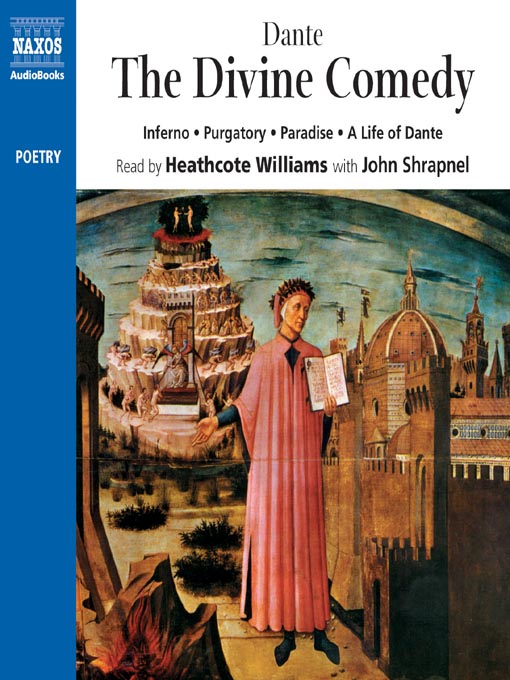Dante’s vision, The Divine Comedy, has profoundly affected every generation since it first appeared in the early 14th century. The box set contains the trilogy of The Inferno, Purgatory and Paradise, plus a biography of Dante – A Life of Dante – which puts the very personal nature of his poetry into perspective.
Unabridged in a new translation by Benedict Flynn
The Inferno
“Abandon all hope you who enter here”
(Lasciate ogne speranza voi ch’intrate)
Dante’s Hell is one of the most remarkable visions in Western literature. An allegory for his and future ages, it is, at the same time, an account of terrifying realism. Passing under a lintel emblazoned with these frightening words, the poet is lead down into the depths by Virgil and shown those doomed to suffer eternal torment for vices exhibited and sins committed on earth.
Inferno is the first part of the long journey which continues through redemption to revelation – through Purgatory and Paradise – and, in this translation prepared especially for audiobook, his images are as vivid as when the poem was first written in the early years of the 14th century.
Music: Chominciamento Di Gioia
Purgatory
“Now of that second kingdom I shall sing where human souls are purified of sin and made worthy to ascend to Heaven”
Purgatory is the second part of Dante’s The Divine Comedy. We find the Poet, with his guide Virgil,ascending the terraces of the Mount of Purgatory inhabited by those doing penance to expiate their sins on earth. There are the proud – forced to circle their terrace for aeons bent double in humility; the slothful – running around crying out examples of zeal and sloth; while the lustful are purged by fire.
Though less well-known than Inferno, Purgatory has inspired many writers including,in our century, Samuel Beckett, and has played a key role in literature.
Music: Chominciamento Di Gioia
Paradise
“I have been in the Heaven that takes up most of his light, and saw things there that those who descend from that height cannot speak of or forget…”
Led by his guide Beatrice, Dante leaves the Earth behind and soars through the heavenly spheres of Paradise. In this third and final part of The Divine Comedy, he encounters the just rulers and holy saints of the Church.
The horrors of Inferno and the trials of Purgatory are left far behind. Ultimately, in Paradise, Dante is granted a vision of God’s Heavenly court – the angels, the Blessed Virgin and God Himself.
Music: Hildegard von Bingen, Machaut, Gregorian Chant.
A Life of Dante
Dante's vision, "The Divine Comedy", has profoundly affected every generation since it first appeared in the early 14th century. Here is a brief account of his life, compiled from various sources (including his first biographer, Boccaccio) by Benedict Flynn, whose new translation of the Comedy, on Naxos AudioBooks, read by Heathcote Williams, has been widely acclaimed. It sets the known facts of Dante's life against the turmoil of the times, and puts the very personal nature of his poetry into perspective.
Music: Medieval Italian music


